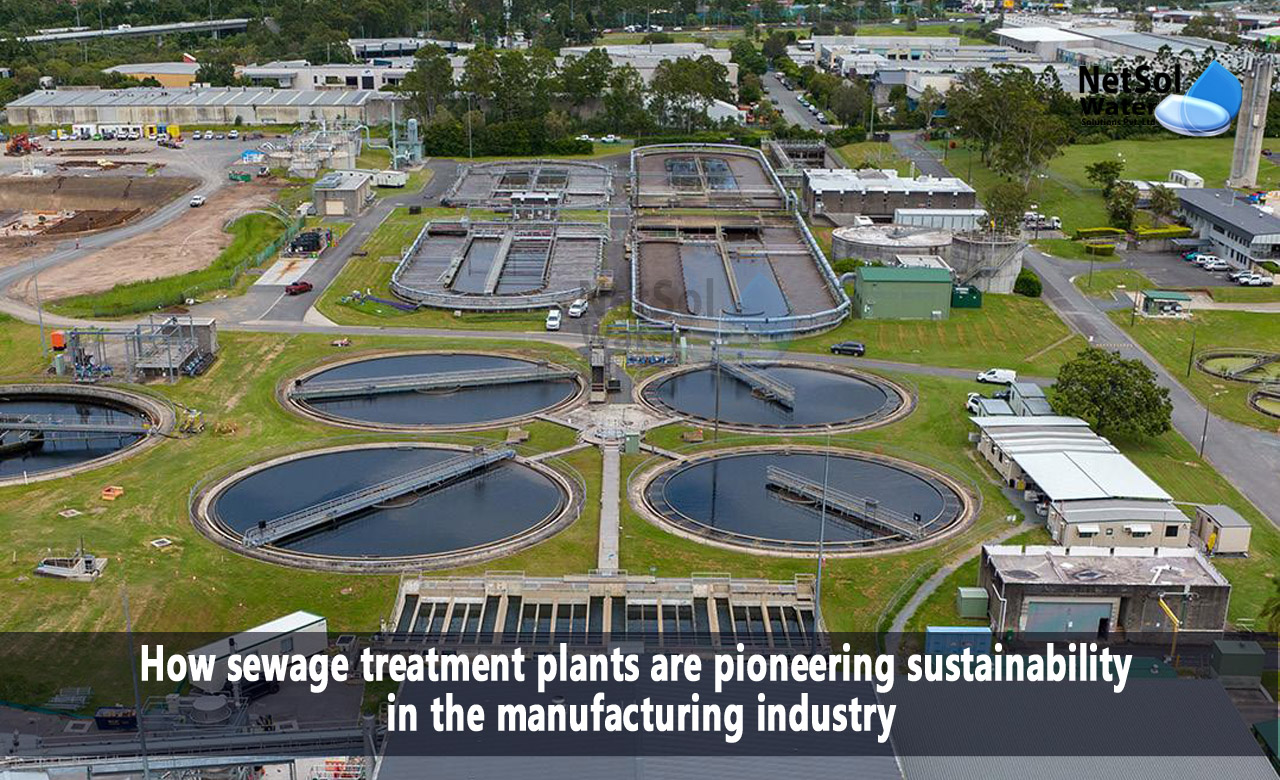How STP plants are pioneering sustainability in the manufacturing?
In an era where sustainability is a global imperative, the manufacturing industry is taking significant strides to minimize its environmental impact and embrace sustainable practices. One area that plays a pivotal role in this endeavor is sewage treatment plants. These innovative facilities have emerged as pioneers of sustainability within the manufacturing industry. By effectively treating wastewater, promoting resource recovery, and fostering circular economy principles, sewage treatment plants are transforming the way manufacturers operate.
In this blog post, we will explore how sewage treatment plants are pioneering sustainability in the manufacturing industry.
1- Waste to Resource Conversion
Traditionally, manufacturing processes generated substantial amounts of wastewater that were seen as waste to be disposed of. However, sewage treatment plants are revolutionizing this perspective by converting waste into valuable resources. Advanced treatment technologies enable the recovery of energy, nutrients, and water from wastewater. For example, anaerobic digestion processes can convert organic matter into biogas, a renewable energy source that can be used to power manufacturing operations. Nutrient recovery technologies extract valuable elements like nitrogen and phosphorus, which can be repurposed as fertilizers or utilized in the production of biofuels and bioplastics. By transforming waste into resources, sewage treatment plants contribute to the circular economy, reduce dependence on virgin resources, and promote sustainable manufacturing practices.
2- Water Conservation and Reuse
Water scarcity is a growing concern globally, and the manufacturing industry is a significant water consumer. Sewage treatment plants play a crucial role in addressing this challenge by promoting water conservation and reuse. Advanced treatment processes remove contaminants from wastewater, enabling its purification to a quality suitable for non-potable uses. Treated wastewater can be utilized for various applications such as irrigation, cooling towers, and industrial processes. By incorporating water reuse systems, manufacturers can reduce their reliance on freshwater sources, minimize water consumption, and contribute to water conservation efforts. This not only helps address the water scarcity issue but also reduces the energy and costs associated with water treatment and supply.
3- Environmental Compliance and Regulatory Standards
Manufacturers face stringent environmental regulations and compliance standards related to wastewater treatment and discharge. Sewage treatment plants provide a sustainable solution to meet these requirements. By implementing advanced treatment technologies, manufacturers can ensure that their wastewater meets or exceeds regulatory standards. Compliance with environmental regulations not only avoids legal issues and penalties but also demonstrates a commitment to responsible and sustainable manufacturing practices. Sewage treatment plants help manufacturers navigate complex regulatory frameworks, ensuring their operations align with environmental guidelines and contribute to a healthier planet.
4- Reduced Environmental Footprint
The manufacturing industry has long been associated with significant environmental footprints due to its resource-intensive processes. Sewage treatment plants help reduce this footprint by mitigating the environmental impact of wastewater discharge. By treating wastewater effectively, these plants remove pollutants and contaminants, preventing water pollution and preserving the ecological balance of water bodies. This leads to improved water quality, reduced harm to aquatic ecosystems, and enhanced overall environmental health. By prioritizing sustainable wastewater management, manufacturers can minimize their environmental footprint and foster a positive relationship with the environment and surrounding communities.
5- Positive Brand Image and Stakeholder Engagement
Sewage treatment plants provide manufacturers with an opportunity to enhance their brand image and engage stakeholders. Embracing sustainable practices and investing in wastewater treatment and resource recovery demonstrates corporate social responsibility and a commitment to environmental stewardship. Manufacturers that prioritize sustainability are more likely to attract environmentally conscious consumers, investors, and employees. By showcasing their efforts in wastewater management, manufacturers can differentiate themselves in the market, build trust, and forge stronger relationships with stakeholders. This positive brand image not only enhances reputation but also positions the company as a leader in sustainable manufacturing practices.
Conclusion
Sewage treatment plants are at the forefront of driving sustainability in the manufacturing industry. By effectively treating wastewater, promoting resource recovery, conserving water, ensuring compliance with regulations, and reducing the environmental footprint, these plants enable manufacturers to embrace sustainable practices and contribute to a more environmentally conscious future. As the manufacturing industry continues to evolve, sewage treatment plants will remain key players in pioneering sustainability, transforming manufacturing processes, and driving positive change across the sector.
Netsol Water is Greater Noida-based leading water & wastewater treatment plant manufacturer. We are industry's most demanding company based on client review and work quality. We are known as best commercial RO plant manufacturers, industrial RO plant manufacturer, sewage treatment plant manufacturer, Water Softener Plant Manufacturers and effluent treatment plant manufacturers. Apart from this 24x7 customer support is our USP. Call on +91-9650608473, or write us at enquiry@netsolwater.com for any support, inquiry or product-purchase related query.



